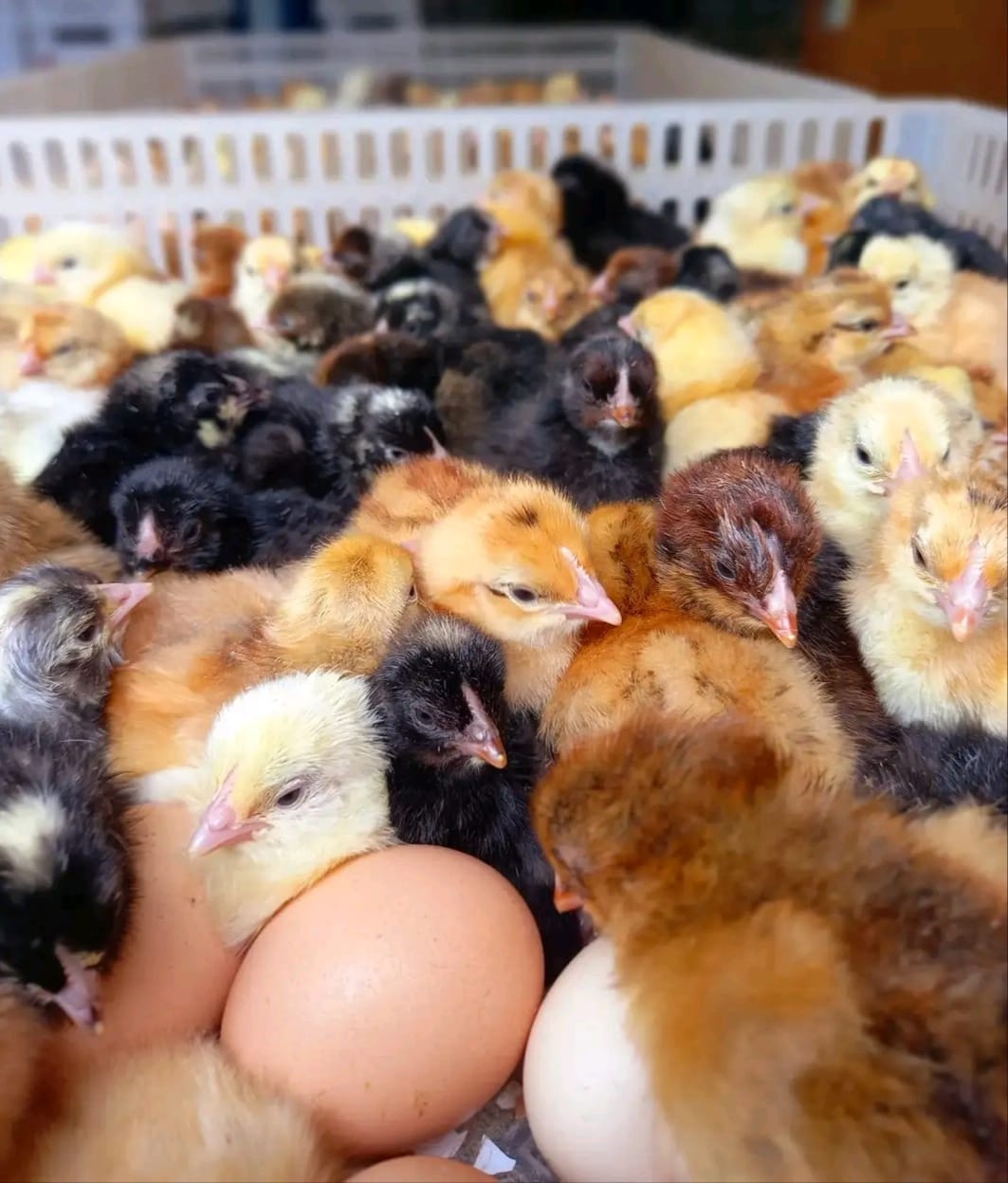By George Munene
As the price of feed has soared, savvy poultry farmers have pivoted from the business of egg production to egg hatching. Through this simple step of value addition, an egg can increase fivefold in value.
Daniell Muketha is a farmer who made this pivot last year with good reason. “I used to buy a 50 kilo bag of feed for Sh2,500–which has risen by over 1,000 bob in the past year– and sell my eggs for 20-30 shillings. My profit margins became increasingly thin with the farm often operating at a loss,” he explained.
Given his level of investment, the Meru farmer has been in the trade since 2017, and has a flock of over 1,000 birds, exiting the poultry business was not an option.
From his Skala poultry Farm, he now sells over 400 chicks monthly, all at different stages of growth. Day-old chicks for Sh100, Sh120 for a week old, and Sh250 for month-old chicks.
Related News: Farmer increases eggs 60% with homemade azolla plant protein
Related News: Steep egg prices to persist until October on maize & soya shortage
“The first and most critical step is ensuring your parent brood is first filial generation (F1), i.e, first generation. They mature on time (4.5-5 months), have production capabilities synonymous with the breed, and are resistant to diseases,” Daniell illuminated.
Using F2 or lower brooders will give chickens that take up to eight months to reach maturity and have both poor production and disease resistance.
For egg fertilization, he selects his best cockerels stocked at a 1:10 ratio.
The eggs are held in the incubator for 18 days before being shifted for hatching in three days.
The farmer keeps Kenchic’s Kenbro chicken for their dual purpose characteristic. They can lay 20-25 eggs every month. Cockerels weigh 3.5-4 kg when mature and hen 2.5-3kg.
Other breeds that are suited for fertilisation include; Sasso–a dual-purpose improved kienyeji chicken, the hybrid Kuroiler from Uganda, and The Rainbow Rooster.
Related News: Eggs move to short supply after culls of hens by farmers during Covid lockdown

“The major investment I had to make was a Sh60,000 incubator that holds 528 eggs. You must also ensure you have a generator that will be used when electricity is lost and a heating system (an infra-red bulb/ jiko) to keep chicks warm in the hatchery,” he said.
Daniell informed that cheaper, locally assembled incubators can be sourced for as less as Sh45,000. Their egg-carrying capacity also varies; from as little as 100 to 5000.
He advises any farmer looking to venture into this line of business to invest in their online presence and have trustworthy business practices–” Most of my clients are farmers I have never met. Still, when I send a parcel of chicks to them, they are sure to receive it.”
Skala Poultry Farm: 0727998849